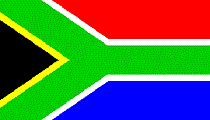The African Innovation Foundation (AIF) announced the top 10 nominees for its landmark program, the Innovation Prize for Africa (IPA). Now celebrating its 5th year under the theme “Made in Africa”, IPA is the premier innovation initiative in the African continent, offering a grand share prize of $150,000 and incentives to spur growth and prosperity in Africa through home-grown solutions.
The IPA has seen tremendous growth in applications and increasing interest from both innovators and innovation enablers over the years. IPA 2016 attracted a record 3,600 plus innovators and received 985 successful submissions from 46 African countries; these were narrowed down to 10 finalists.
While there are 10 nominees as finalists, only two of the nominees are involved in Africa’s renewable energy sector; Andre Nel’s Green Tower and Johan Theron’s PowerGuard, both out of South Africa.
Green Tower is an off-grid water heating and air conditioning solution based on solar power that uses advanced thermos-dynamics to create up to 90% savings in electricity consumption. Water heating and air conditioning systems can account up to 60% of energy consumption in a home or building. There are a number of heating and cooling systems in the market, but few that have demonstrated consistency in efficiencies regardless of weather conditions. The Green Tower improves efficiency of a solar heat pump with solar thermal collectors, low pressure storage tanks and heat exchangers. With Africa’s middle class rapidly growing and demand for energy outstripping supply, this initiative has the potential for large scale roll out. Green Tower can conserve limited energy resources, diverting them from heating and cooling systems to more productive industries.
PowerGuard enables consumers to determine the maximum amount of power supply required for daily operations. Consumers can thus reduce their power demand, especially during peak times, leading to a more efficient power supply, and helping to reduce power cuts. PowerGuard addresses electricity fluctuations, and power delivery and supply challenges by reducing the peaks, relieving pressure on the electricity network. Consumers can set their own maximum peak power usage needs. This technology substantially reduces load shedding and power rationing, diverting power to more productive industries. Africa faces a high demand for grid power, but with limited resources and an aging infrastructure, the existence of a smart grid can help reduce the pressure on existing infrastructure while moving the continent slowly towards renewable energy.

